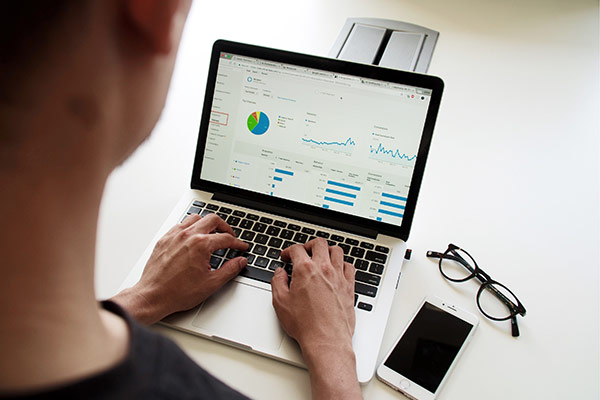Months:
Total interest:
Total amount:
Table of Contents
A credit card can land you in a lot of financial trouble if not used correctly.
It's important to know how much you owe, when you will be able to pay it off and if you have the financial health to manage your credit card debts. This page will look into these aspects and give you some tips on how to beat credit card debt.
Benefits of using a credit card calculator
Everyone should keep track of their credit card debt repayments. It will help you to manage your money better and generally practice better financial health. Let's look at some of the benefits of using the calculator:
- Calculate how much you need to pay each month to pay off your credit card debt.
- See the total amount of interest that you will pay and how long it will take to pay off the total balance of the debt.
- Change the credit card balance, set the interest rate and monthly payments to accomodate for multiple types of credit card loan types.
Managing your finances is crucial if you want to have a good quality of life, not just in the present but in the future. This is because if you don't manage your finances then you are likely to get into debt. So one of the most important things you have to do is to calculate your credit card debt repayments. Luckily, this page covers many of the questions and answers that will help you to improve your financial health.
What is the point of a credit card?
Whether you're a college student or a high earner, a credit card can be a great tool to have in your financial toolbox. Like any financial tool, a credit card comes with a series of benefits and drawbacks. Here, we'll take a look at the benefits of using a credit card to improve your financial credit rating. Your credit rating is an important factor in determining your access to credit and other financial products. It's essentially a number that summarizes your financial history as a whole. A high credit score will help you access credit with lower interest rates and better terms. Having a good score can make your path to financial freedom a lot easier.
Credit cards can be great way to help yourself when buying big ticket items that you know you can afford. The biggest mistake that people make with credit cards, is that they don't really understand how they work and they run into problems.
Should credit cards be paid off in full?
Credit cards are a lifeline for many people in the United States, especially as income inequality rises and wages remain stagnant. And even if you make a decent amount of money, credit cards can be incredibly useful for things like keeping up with your budget, earning rewards, and paying for an unexpected expense without having to take a loan out. But chances are, if you take a look at your credit card statement, you'll see a hefty debt hanging over your head. Is it really worth it to keep paying off those credit cards month after month? The answer to this question is a little complicated, but the short answer is yes.
Paying off your credit card each month assures the bank that you are on top of your finances. They can see that you are consistent, and responsible with your finances. As a result it means that you are given a higher credit rating, which will open doors to future loans, financing and a whole range of financial opportunities from not only your bank, but also lending companies and other financial institutions.

What credit card can I get with bad credit?
There are a variety of credit cards for people in different situations. If your credit is really bad, it is rather difficult to get a credit card. So, what is the answer? Is it possible for you to get a credit card with bad credit? The answer is YES. There are several credit card companies that provide credit cards to people with bad credit.
The short answer is that there are plenty of credit cards available for people who have bad credit, and these are readily available on the market. However, it is not as easy to get approved for them as it would be if you had a good credit rating. You will need to apply for a credit card with a bank that specializes in this area.
Getting a credit card is a great way to improve your credit rating if you have bad credit. Having a better credit rating will make it easier for you to take personal loans and home loans in the future. Normally banks that specialize in financial credit rating will often have more lenient credit card requirements.
It's important to keep in mind that not all banks are created equal. However, many banks that faciliate this will have higher interest rates and lower credit limits. That is the downside to the situation, but over time your rating will improve and you will have access to more financial products.
Why is credit card debt bad?
Depending on the type of credit you have, credit cards can be your best friend or your worst enemy. Credit cards are one of the most useful forms of credit and can be used for everything from paying for groceries to traveling the world. But with great power comes great responsibility. Credit cards can be a great way to improve your credit score, but only if you use them responsibly.
Sure, it's nice to be able to go out to eat whenever you want and buy new things for your home or business. But, sometimes it's easy to get in over our heads with credit card debt. All these purchases and paying the bills can really add up! The average U.S. household has a credit card balance of nearly $15,000. Even worse, nearly half of Americans have no money in savings. It's very important to know how to use a credit card and when it's best to just use cash. Planning ahead is key to avoiding credit card debt.
When you plan ahead, you're more likely to have enough money to pay for your purchases. You'll also know when you need to pay your credit card bill, so you can pay it on time. Credit card debt isn't just something to worry about. It can also affect your credit rating. Having a low credit score can make it difficult for you to get a loan to buy a car or home. It can also make it more expensive for you to get a loan. Here are a few tips on how to avoid credit card debt and how to improve your credit rating.

Why use a credit card repayment calculator?
A credit card debt repayment calculator makes it possible to plan your monthly budget effectively. This is particularly useful for someone with a large number of debts or bills, making it more difficult to work out if all payments and contributions are being met. It simplifies the monthly repayments and makes planning future financial commitments much easier.
An extra benefit from the credit card debt repayment calculator is that it displays the total interest paid, along with the principle payments. This allows you to choose a payment term that is more beneficial to you.
How do credit card companies make money?
You probably know that credit card companies make money by charging a fee for using their services. What you may not know is that credit card companies can make money from a customer in more ways than just charging them a fee. They can also make money from the businesses that you spend money with, and they can also make money from the rewards programs that they run.
To understand how this works, you need to think about the credit card companies as a bank. Just as you can open up a bank account and deposit money, credit card companies can also open up an account and deposit money. In fact, when you sign up for a credit card company, you become a depositor.
In exchange for your money, the credit card company will make sure that the money in your account is safe and they will pay you interest. If you spend the money in your account, then the credit card company will charge you a fee. However, if you don't spend all of the money in your account, then you will earn a higher rate of interest.
Why use a Credit Card Calculator?
The credit card calculator allows you to plan your credit card debt and credit card repayments more effectively. It also makes it easy to see how much time it takes to pay off credit card balance and become debt free.
FAQS
A credit card is a payment card that allows you to borrow money up to a certain limit to make purchases or pay for services. It's a form of revolving credit, meaning you can use it repeatedly as long as you repay the borrowed amount within the specified time frame.
When you use a credit card for a purchase, you are essentially borrowing money from the card issuer up to your credit limit. You are required to repay the borrowed amount, along with any applicable interest and fees, by the due date specified on your monthly statement. If you don't pay the full balance, you'll incur interest on the remaining amount.
A credit limit is the maximum amount of money that you can borrow on your credit card. It's set by the card issuer based on factors like your credit history, income, and financial stability. Exceeding your credit limit may result in fees or declined transactions.
An annual fee is a fee charged by some credit card issuers for the privilege of using their card. Not all credit cards have an annual fee, and those that do may offer additional benefits or rewards to justify the cost.
Rewards and cash back credit cards offer incentives for using the card, such as earning points, miles, or cash back on purchases. These rewards can be redeemed for a variety of benefits, including travel, merchandise, statement credits, or gift cards.
If you don't pay your credit card balance in full, you will incur interest on the remaining balance. This interest is typically calculated based on the annual percentage rate (APR) of the card. Carrying a balance from month to month can lead to the accumulation of debt and higher overall costs.